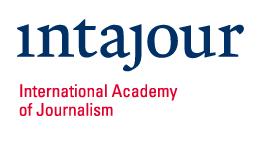My Mind Words Paper [Search results for journalism]
The 4th Annual National Union of Journalists/ Vodacom Journalism Prize (Mozambique)
Deadline May 31 | FA Foundation's Immigration Journalism Award (open to journalists of any nationality)
Deadline May 23 | Job Opening: Journalism Trainer for BBC Media Action (station: Sierra Leone)
Job Opening: Journalism Trainer for BBC Media Action (station: Sierra Leone)
No Submission Fee for Writers Afrika's Followers: FA Foundation's Immigration Journalism Award (open to journalists of any nationality)
Apply for the Intajour International Academy of Journalism Fellowship in Germany
Deadline June 8 | The Bayeux-Calvados Award for War Correspondents (web journalism/ written press)

Call for Candidates: The Bayeux-Calvados Award for War Correspondents (Web Journalism/ Written Press)
Call for Applications: The Intajour Journalism Fellowship Program 2012/ 2012 (worldwide)
Deadline May 7 | Call for Applications: The Intajour Journalism Fellowship Program 2012/ 2012 (worldwide)
Call for Papers: Arab Journalism Conference in Abu Dhabi
Deadline May 31 | Call for Papers: Arab Journalism Conference in Abu Dhabi
Deadline Extended: OPEC Journalism Award 2012 (eligible countries: Algeria/ Angola/ Libya/ Nigeria)
Internews Health Journalism Fellowship (Kenya)
Internews - Kenya Health Journalism Fellowship
Netherlands Fellowship Program: RNTC Broadcast Journalism Scholarship
Deadline May 18 | The Pritzker Fellowships: Training a Diverse New Generation of Journalists (worldwide)
Funded by Google: Data Journalism Scholarship at the University of Hong Kong (worldwide)
The Pritzker Fellowships: Training a Diverse New Generation of Journalists (worldwide)
French-American Foundation Immigration Journalism Fellowship 2011 (worldwide)

